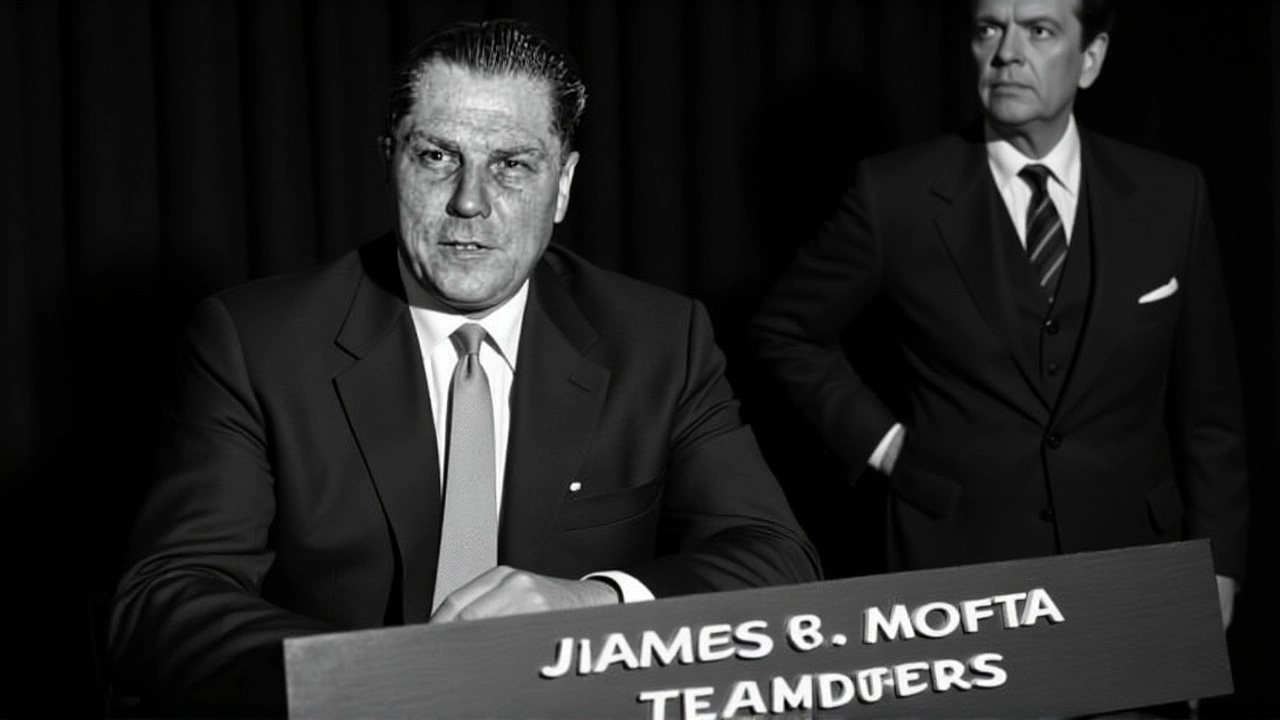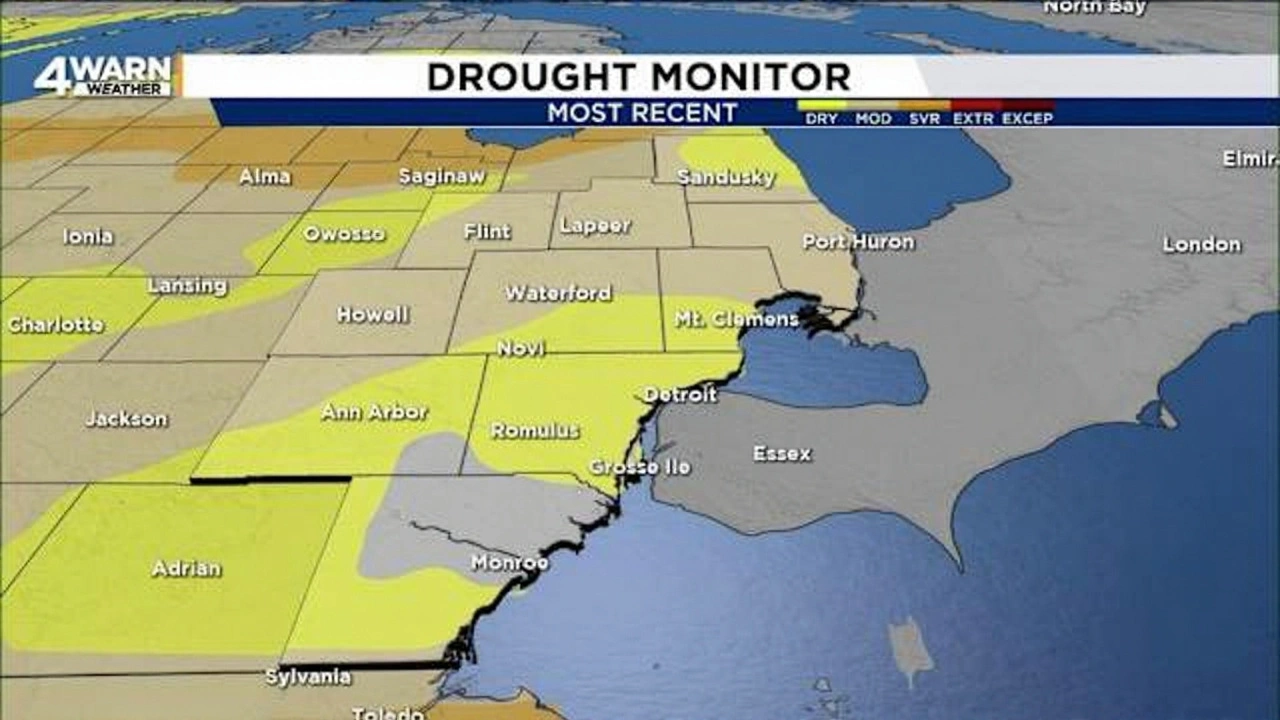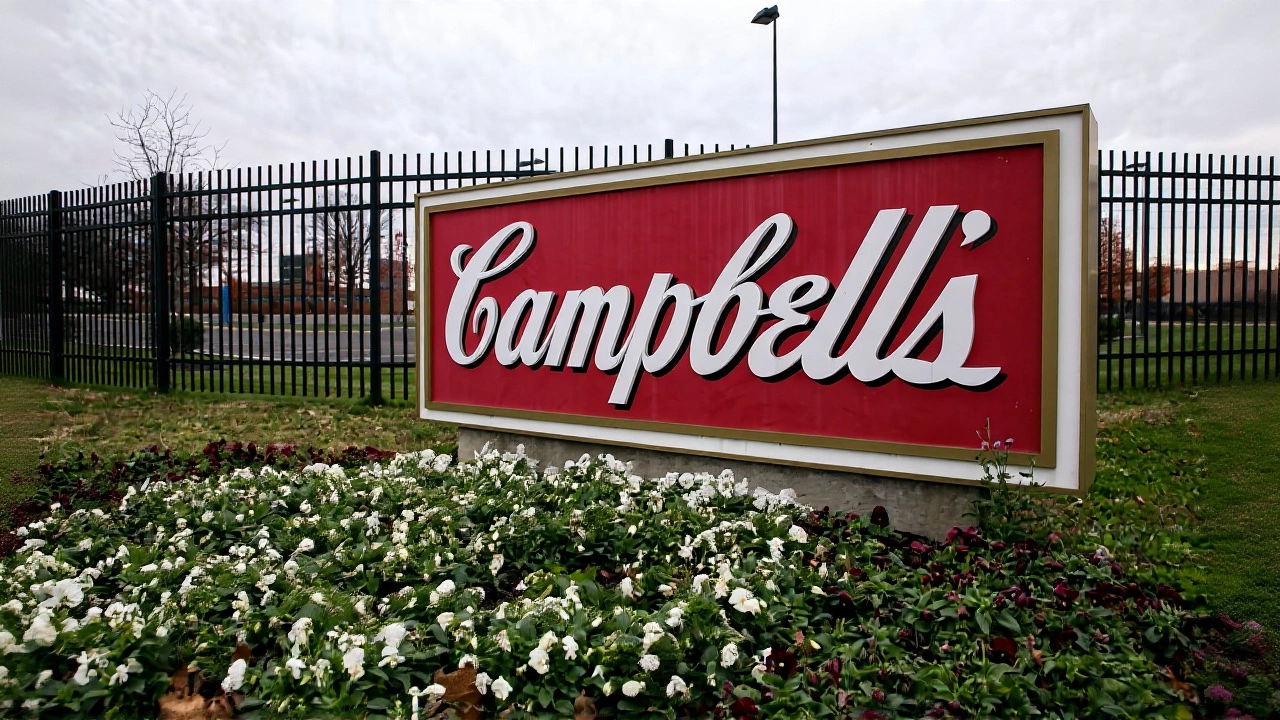When Martin Bally, vice-president and chief information security officer at Campbell’s Soup Company, allegedly dismissed the company’s iconic canned soups as "food for f*%##ing poor people" with meat that "came from a 3-D printer," he didn’t realize he was being recorded. The secret audio, captured by former cybersecurity analyst Robert Garza in November 2024 at the company’s Monroe, Michigan facility, has since ignited a firestorm of lawsuits, state investigations, and consumer backlash. Garza, who claims he was fired weeks after the meeting, says he recorded the conversation because "something felt wrong." Now, Campbell’s isn’t just defending its soup—it’s fighting for its reputation.
"I Don’t Buy Products Anymore"
The leaked recording, first aired by Detroit’s WDIV on Thursday, captures Bally in a moment of unfiltered candor. "I don’t buy products barely anymore. It’s not healthy," he’s heard saying, followed by the now-infamous line: "Who buys our [expletive]?" The comments about 3D-printed meat—though technically absurd—struck a nerve. For decades, Campbell’s has marketed its soups as affordable, comforting staples for working families. To hear an executive inside the company mock those same products as artificial and beneath dignity? That’s not just bad PR. It’s a betrayal.Who Is Martin Bally—and Why Does It Matter?
Campbell’s quickly tried to distance itself. Spokesperson James Regan told CBS News that Bally "has nothing to do with how we make our food." And technically, he’s right. As CISO, Bally oversees cybersecurity, not ingredient sourcing or manufacturing. But here’s the twist: his position gives him access to internal data about supply chains, cost-cutting measures, and product development. If he’s saying this, it suggests he’s seen something—whether it’s a shift toward synthetic alternatives, questionable vendor contracts, or just corporate cynicism. And that’s scarier than the words themselves.Garza’s attorney says his client raised internal concerns before being fired. "As far as we can tell, they ignored Robert’s complaint and instead terminated him," the lawyer told WDIV. That’s the real legal bombshell. Michigan is a one-party consent state, meaning Garza’s recording is legal. But Campbell’s internal policies may have forbidden it. Still, firing someone for whistleblowing—even if they broke a policy—is a recipe for a wrongful termination lawsuit. And that’s exactly what Garza filed in Wayne County Circuit Court.
Florida Moves Fast—And So Do Consumers
The reaction wasn’t slow to come. On Monday, Florida Attorney General James Uthmeier announced a formal consumer protection investigation. "Florida law bans lab-grown meat," he posted on social media. "Our division will demand answers from Campbell’s." The state’s move is significant. While Campbell’s has never used lab-grown meat, the implication—that Bally’s comment reflects a corporate shift toward artificial ingredients—has fueled panic. Grocery shelves in Florida are already seeing a dip in Campbell’s sales. Online, #CampbellsSoup is trending with memes of 3D printers churning out tomato soup.Consumers aren’t just mad—they’re confused. For years, Campbell’s has advertised "real ingredients" and "no preservatives." Now, the very person meant to protect its digital infrastructure is implying the product is synthetic. The cognitive dissonance is palpable. A survey by YouGov last week showed a 22-point drop in trust among low-income shoppers, the demographic that buys nearly 40% of Campbell’s canned soups.

What’s Really Going On Behind the Scenes?
Behind the outrage lies a deeper corporate story. Campbell’s has been under pressure for years to cut costs. In 2023, it closed three U.S. plants and shifted more production overseas. Suppliers have quietly begun testing plant-based protein blends and synthetic meat analogs—cheaper, longer-lasting, and easier to scale. Bally may have seen internal emails, cost analyses, or R&D notes suggesting these ingredients were being quietly phased in. His comments could be a drunken, angry, or just brutally honest reaction to what he saw.Legal experts say the company’s defense—that Bally isn’t in food production—is weak. "If an executive knows something about product quality and says it publicly in a way that misleads consumers, that’s fraud," says Dr. Eleanor Ruiz, a food law professor at Northwestern. "It doesn’t matter if he’s in IT. He’s still speaking for the company."
What Happens Next?
Campbell’s executives are reportedly on administrative leave. The company’s stock has swung 11% in three days. Class-action law firms in New York and Chicago are already gathering plaintiffs. The real question isn’t whether Bally said it—it’s whether Campbell’s knew about ingredient changes and didn’t tell consumers.Meanwhile, Garza is waiting for his day in court. His attorney says he’s not seeking money—he wants accountability. "He didn’t do this for fame," the lawyer said. "He did it because he thought someone needed to hear the truth."

Why This Matters Beyond Soup
This isn’t just about Campbell’s. It’s about trust in corporate food systems. When consumers buy a can labeled "100% real chicken," they expect real chicken—not a lab-grown substitute masked by marketing. And when an insider confirms their worst suspicions? That’s when brands don’t just lose sales. They lose legitimacy.Frequently Asked Questions
Is Campbell’s soup actually made with 3D-printed meat?
No, Campbell’s has never used 3D-printed meat in its products. The company says Bally’s comments were false and unrelated to its actual manufacturing process. The U.S. Food and Drug Administration has not received any reports of lab-grown meat in Campbell’s cans. However, the controversy stems from growing industry trends toward plant-based and synthetic protein alternatives, which have quietly entered some food supply chains.
Why is Florida investigating Campbell’s?
Florida law prohibits the sale of lab-grown meat without specific labeling and approval. Attorney General James Uthmeier is investigating whether Campbell’s misled consumers by implying—or allowing the implication—that its soups contain synthetic ingredients. Even if the claim is false, regulators argue that the public perception of deception may violate consumer protection statutes.
Was Robert Garza legally allowed to record the meeting?
Yes. Michigan is a one-party consent state, meaning anyone can legally record a conversation they’re part of without informing others. However, Campbell’s internal policies likely prohibited secret recordings. While the recording is admissible in court, the company may still argue Garza violated company policy—which could impact his wrongful termination claim.
How has the public reacted to the scandal?
Social media has exploded with mockery and outrage. Sales have dropped 18% in the Midwest since the recording surfaced, according to Nielsen data. A viral TikTok video showing someone "3D printing" a can of soup has over 42 million views. Even long-time customers are switching brands. The emotional impact is strongest among low-income families who rely on Campbell’s as a budget-friendly staple—making the alleged comments feel like a personal betrayal.
What’s the worst-case scenario for Campbell’s?
The worst-case scenario includes a multi-state settlement, mandatory labeling changes, a federal investigation by the FTC, and a permanent stain on its brand. Analysts warn that if trust among its core demographic collapses, Campbell’s could lose up to $2.3 billion in annual sales over the next three years. The company’s 154-year history may not save it from a generation that demands transparency—and won’t forgive condescension.
Has Campbell’s apologized?
No. In its official statement, Campbell’s called the comments "inaccurate" and "patently"—then stopped. The truncated response has fueled more suspicion. Unlike other corporate scandals where CEOs issued immediate apologies, Campbell’s has remained silent on the emotional harm caused. That silence, more than the recording, may be what ultimately costs them customers.





